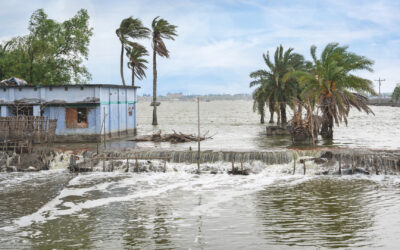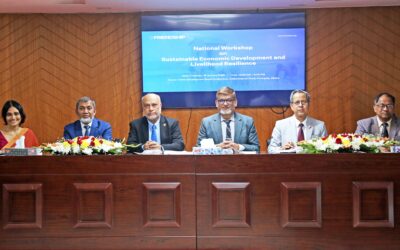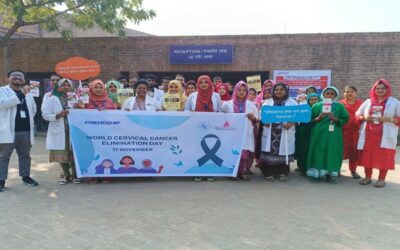A whole village disappears under water, yet the community continues its schooling.
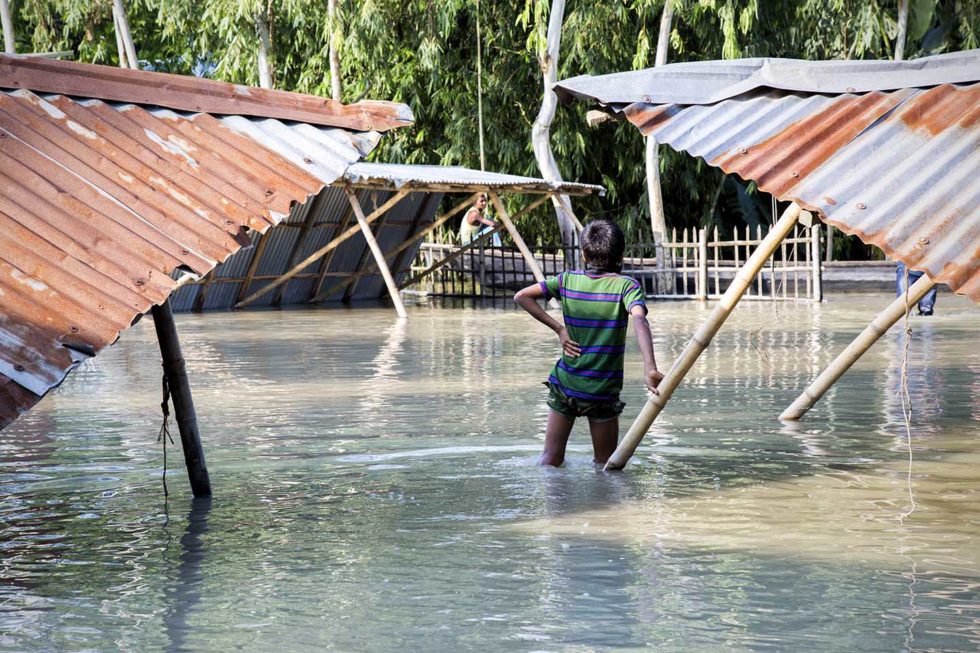
by NAUSHAD ALI HUSEIN
August 27, 2020
Mamotaz Begum’s village is at the bottom of the river. Where there were once homes of some 350 families, among lush corn and paddy fields, vegetable gardens, a mosque, shops—only the muddy waves of the mighty Brahmaputra river remain.
The school where Mamotaz teaches—with its large field surrounded by abundant guava, mango and banana trees—is now only a memory.
But, Mamotaz is still a teacher of Sirajbeg Primary School. Her students and their families are scattered along nearby islands and flood shelters, trying to come to terms with the loss of the ground beneath them; the ground that supported their entire livelihoods. Despite this catastrophe, and the relentless floods that are only just receding, she remains in contact with the children over the phone, ensuring they are progressing with their studies to whatever extent possible.
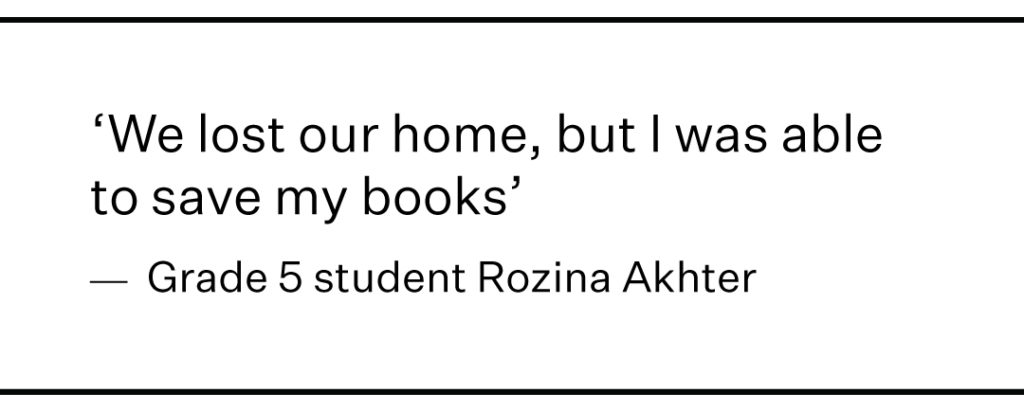
Yearly Disaster
Floods are an annual misfortune in Bangladesh, but this year’s floods are stated by government officials to have been the worst in a decade. A third of the country is under water. 5.4 million people have been affected. Children have drowned, and farmers have lost their crops and livestock. However, for the inhabitants of the chars—the river islands—the flood is a whole other beast.
The chars are situated on the river itself, beyond the protection of embankments, and are thus completely exposed to the forces of nature. The landscape is made of silt deposits from the river. When the river is in spate, that is, flowing at its full strength, it breaks away huge chunks of land and deposits them elsewhere. Millions live on this moving landscape.
Yet, this year, the erosion in Char Sirajbeg and the surrounding chars are of an unprecedented magnitude. Usually, when land begins to erode, the villagers have enough time to react, dismantling their homes and arranging boats to save their houses, grains, livestock, documents and other possessions. But on this occasion, the shoreline receded more than a kilometre overnight. There was no time.
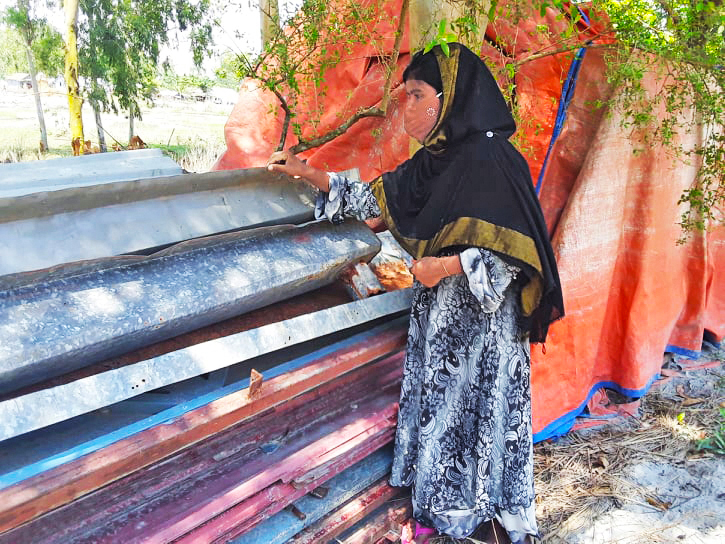
“Everyone has suffered a great deal,” says Mamotaz. “People saved whatever they could take on the boats that were available.” Friendship, local government and boat owners all pulled together to bring boats to the most vulnerable. Those who were unable to find accommodation with relatives on adjacent islands moved to a government shelter.
In the next two days, the entire island was swallowed up.
Saving the School
“When the chairman of the School Management Committee called saying that we have to dismantle the complex, I was dumbstruck,” says Md. Golam Azam, project officer at Friendship’s Chilmari office. Despite having injured his foot while working in the floods, he rushed to make preparations, still not believing what was about to happen. On July 11, 2020, Friendship Primary School, Chilmari, was dismantled just as the river closed in on it.
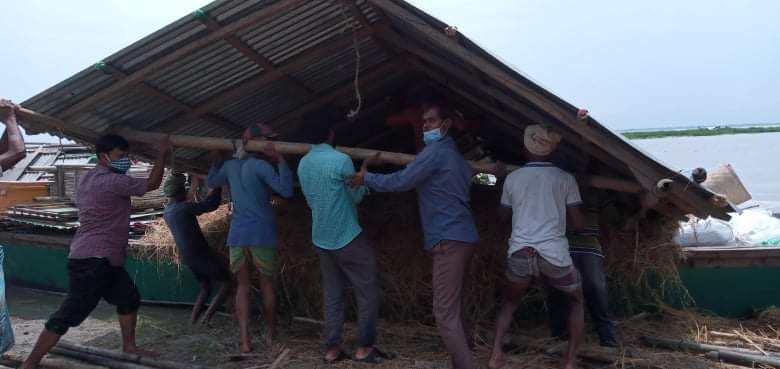
“The villagers did not want to lose their school. One of the parents provided his own land, a distance from the river on a nearby island, for the dismantled building to be stored.”
“We lost our home, but I was able to save my books,” says Grade 5 student Rozina Akhter, whose family found shelter in the same village as her teacher.
“It’s difficult teaching those who are sheltering far away from us, but we’re doing as much as we can over the phone,” says Mamotaz. Since schools were forced to shut down in March due to Covid-19, teachers have continued lessons through phone calls and home visits, as required.
Destruction, Recovery, Prosperity
When the flood recedes, it leaves behind new inhabitable lands; these alluvial deposits form some of the most fertile soil in the world. This is the cycle of life in the chars. Destruction. Recovery. And hopefully, prosperity.
“We’re waiting to see where the char forms when the water recedes,” says Mamotaz. “Most likely, the majority of our Sirajbeg community will remain together, finally. Most importantly, we would want the school to also remain within our community.”

